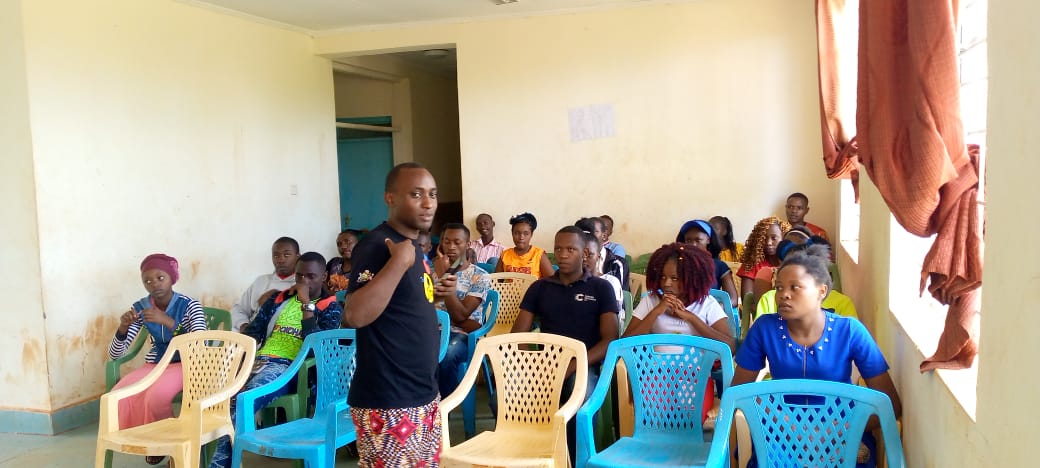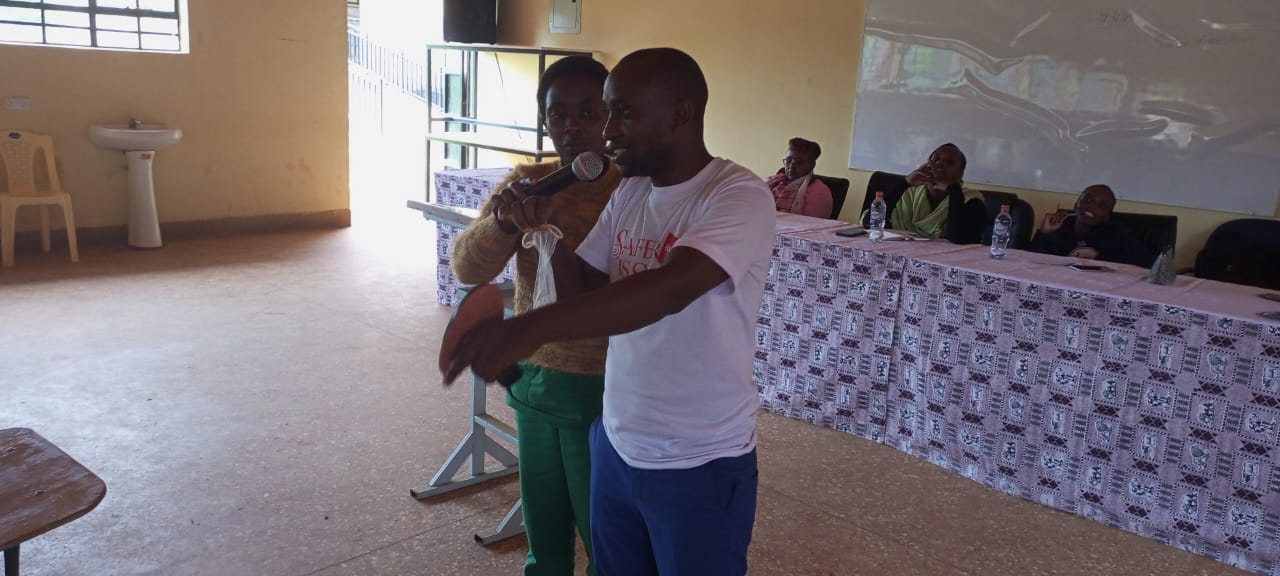

At the tender age of 10, David Mutie Wanjiku watched
helplessly as his parents battled a strange illness that seemed to drain the
very life out of them.
Slowly, but viciously, their health deteriorated and his
father was the first to lose the battle, followed by his mother and lastly his
sister, the only sibling a few years later.
His parents' failing health compounded by the stigma
associated with being HIV positive hit the boy hard leaving him feeling
helpless and abandoned.
“Our family was
isolated and discriminated against even though at this point I still did not
understand the kind of illness my parents were suffering from until years
later” he reminisces
With both his parents deceased, the young boy found himself
in an orphanage in Murang’a where he lived until the age of 18.
At the orphanage, he first hand witnessed the struggles
children and teenagers battling HIV/Aids go through.
He realized that there were a lot of myths, misconceptions, truths and half-truths surrounding HIV and TB which killed his father as an opportunistic infection.

“In full realization of this, a passion for advocacy was
born in me and I took the I initiative to educate young people on how to
protect themselves from HIV and how to positively and productively live with
the virus from the age of 15 years,” he says
The now 28-year-old’s mission is to raise awareness, reduce
stigma towards those living positively, and provide information on prevention,
care and management amongst the youth, mothers, men and women.
He says he started his mission at Koimbi Boys High School as
a peer educator before involving the community by sharing the message of hope
in churches, schools, barazas and even talking to boda boda riders after
graduating with a course in Community HIV management.
“I realized there was
a huge knowledge gap and misinformation that pushes young people to engage in
risky behaviours and this the greatest setback towards the fight against zero
HIV/ Aids infections,” he reveals.
This realization inspired him to conduct research on
factors contributing to Hiv infection among adolescents and young people aged
15-24 in Maragua, county and subsequently write an abstract that was
presented to the National AIDS and STI Control Programme (NASCOP).
“Through this research, I discovered that the youth were more
susceptible to contracting HIV due to among other factors, multiple sexual
partners, poverty, lack of information, ignorance and risky attitudes.
He further notes that some of the intrigues that surround HIV among the youth making it a challenge is that some contracted it from their mothers and now have to live with the virus and this significantly impacts their mental health.
“HIV and mental health are inseparable and this motivated me
to start a foundation to tackle mental health issues among those who have been
affected or infected to advocate for a stigma-free society”
So passionate was he
that he got nominated as a youth leader in the county to educate youth on HIV,
Tuberculosis, mental health and the triple threat.
As a community health assistant in Murang’a since 2020, and
also a paralegal Mutie advocates for HIV awareness, the fight against sexual
and gender-based violence, teenage pregnancy, early marriages and mental health
issues.
“My main focus is increasing efforts to prevent mother-to-child transmission which will bring down the new infections margin,” he notes.
Moreover, he has
formed and registered a group of 20 young people who have also engaged in
farming as an income-generating activity to enable them to carry out advocacy
without a struggle but hope for more partnerships for sustainability.
He urges young people to know their status and those
infected to stick to the medication because HIV/AIDS is not a death sentence.
In the country, a report by the National Syndemic Diseases Control Council (NSDCC) reveals that 2607 children aged below 14 years lost the
battle to HIV in 2023 raising concerns about mother-to-child HIV transmission
prevention.
Statistically, according to the World Health Organization
(WHO), since the beginning of the epidemic, 88.4 million people have been
infected with the HIV virus and about 42.3 million people have died of HIV.
Globally, 39.9 million people were living with HIV at the
end of 2023. An estimated 0.6% [0.6-0.7% of adults aged 15–49 years worldwide
are living with HIV, although the burden of the epidemic continues to vary
considerably between countries and regions.
However, the WHO African Region remains most severely
affected, with one in every 30 adults (3.4%) living with HIV and accounting for
more than two-thirds of the people living with HIV worldwide.









